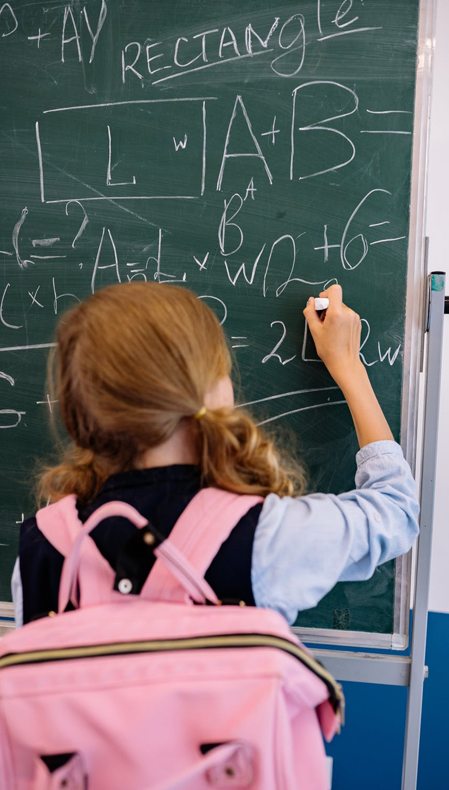What Are the Best Ways to Prepare My Child for Secondary School?
Moving from primary school to secondary school is a big step at the best of times. After the disruptions to education your child will have been through over the past year, it's even more vital than normally to prepare them thoroughly for the transition — starting now.
 What to Prepare in Advance
What to Prepare in Advance
There's plenty you can prepare during the summer holiday, starting with making sure your child has all the equipment and kit they'll need. If you know anyone whose children already go to the school, it can be useful to get their input to find out what are the priorities and what can be put off for a term or two. And don't forget that any clothing (uniform or sports kit) needs to leave room for a normal amount of growth over the first couple of years. You'll also need to make sure your child knows how to get to and from the school. If it's within walking distance, this may be straightforward, although it's still worth going over any significant places they'll need to cross the road. If they're talking the bus or train, it's a good idea to make the journey with them regularly over the summer holiday, until they're ready. Consider, too, whether they're likely to need a key when they come home.
More generally, you'll need to talk to your child over the holiday and prepare them for the very different routines and expectations of a secondary school. You can help them draw up blank timetables for both lessons and homework, which they can fill in and put on their wall when they have the information. Colour-coding these by subject can help your child (and you) remember what they need to take each day. Most schools will have an orientation day during the holidays, and it's important for your child to attend this. They can get used to the layout of the school, which entrance they'll need to use and where important locations like toilets are. It may also give them the opportunity to start making connections with other students before the first day.
Supporting Your Child on the First Day
Even if they hide it well, it's probable your child will be feeling extremely nervous on their first day, so it's important to reassure them that it's OK if it doesn't go perfectly. If you have stories to tell them about your own first day at secondary school (especially stories that will make them laugh) that may well help them. If you're driving your child to school, well and good, but remember that they're getting to an age when they both want and need to start being a little more independent. Ideally, find somewhere to drop them a little distance from the school gate, so they can walk the last little bit. On the other hand, if they have a friend starting on the same day, then it might help them both to arrange to meet outside, so they have company entering the school.
You'll want to know how their first day went when they come home, but don't push them too hard. If they're reluctant to talk, it's possible that something went wrong, so go back to your reassurance.
Supporting Your Child on an Ongoing Basis
Besides helping your child fill in and follow their timetables, also encourage them to write down all the homework they've been given, with the dates it's due. This may well also be posted online, which will enable you to check whether they're following the work correctly. Help your child settle into a routine, especially where doing homework is concerned. Talk over with them the best time to do their homework and whether having free time earlier or later would suit them better. Crucially, make sure they follow a regular bedtime routine — remember that at this age a young person needs nine hours sleep a night.
Although it's important to show interest, resist the temptation to constantly ask how they're doing, especially about the friends they're making. Children take different amounts of time to form friendships, and while you'll want to look out for signs of distress, the last thing your child needs is to feel under pressure.
Finally, if at all possible, get along to any parents' events. Besides keeping track of your child's progress, it will enable you to get to know other parents in the absence of a school gate community. Hopefully your child will cope well with the start of secondary school, but register with TutorExtra for any extra resources you may want to draw on.


